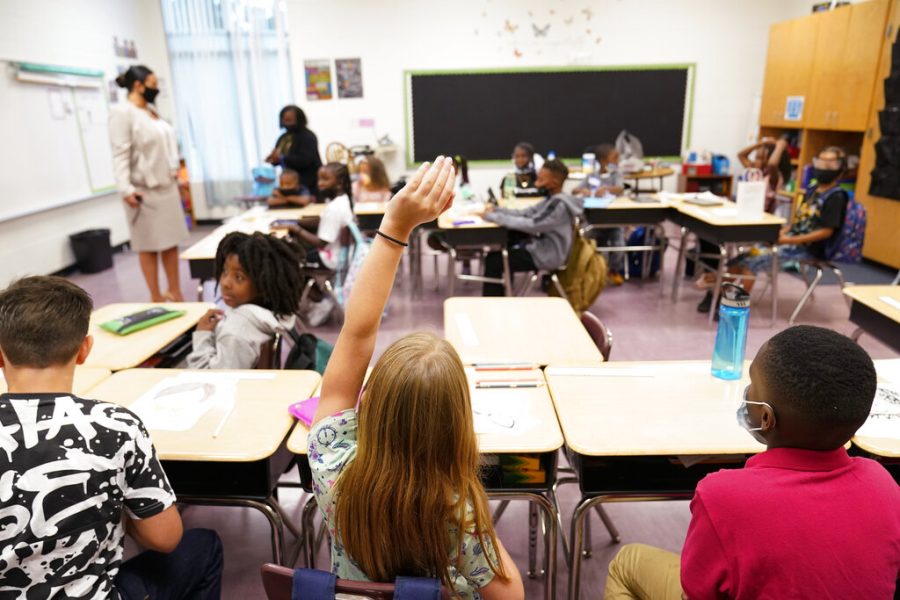The Effect of College Environments on Academic Success and Personal Well-Being
The design of academic rooms, consisting of natural lighting and ergonomic furnishings, can improve trainees' concentration and comfort. Exactly how can schools tactically improve these facets to better support their students?
Physical Format and Design
Exactly how does the physical format and design of an institution impact academic success? The setup and visual of an institution atmosphere can considerably influence pupils' understanding outcomes. A properly designed school layout promotes simplicity of motion, reduces distractions, and fosters a feeling of safety and security and belonging. Broad hallways and clearly marked areas assist in smooth shifts between courses, minimizing lateness and disruption. In addition, strategically positioned typical areas motivate social interactions, which are essential for social and emotional growth.
All-natural lighting and reliable air flow systems are pivotal in improving cognitive feature and decreasing absenteeism. Researches have actually shown that class with adequate natural light boost student focus and reduce sensations of drowsiness. Moreover, ergonomic furniture tailored to trainees' needs can protect against physical discomfort, enabling extended focus and engagement in scholastic activities.
Access to outside rooms and cosmetically pleasing surroundings additionally play a critical function - Save Temecula Schools. Eco-friendly rooms and well-kept institution premises provide opportunities for workout and psychological leisure, both of which are very important for preserving high degrees of academic efficiency. Basically, an attentively created physical environment can work as a catalyst for academic quality, fostering an atmosphere that supports both training and discovering
Class Environment
A positive class atmosphere is basic to achieving scholastic success. An environment that promotes a feeling of security, inclusivity, and shared respect encourages students to engage more actively in their discovering procedures. The ambiance of a classroom, consisting of elements such as lighting, noise degrees, and seating setups, can significantly affect trainee focus and inspiration. A well-ventilated, well-lit classroom with very little disturbances can boost cognitive feature and lower stress and anxiety, thereby promoting better academic outcomes.
Furthermore, the classroom atmosphere ought to support a culture of partnership and open interaction. They are much more most likely to involve deeply with the product and develop essential believing abilities when pupils feel comfortable sharing their concepts and asking inquiries. Peer interactions and team activities can boost understanding by offering diverse viewpoints and cultivating team effort
Moreover, developing consistent routines and clear assumptions can produce a structured atmosphere that permits pupils to concentrate on their researches. By decreasing unpredictability and supplying a foreseeable structure, students can much better manage their time and obligations. Inevitably, a positive class environment not only improves academic performance yet additionally adds to the general health of pupils, preparing them for future educational and personal undertakings.
Teacher-Student Relationships
Building on the relevance of a positive classroom environment, the relationships between trainees and teachers play a pivotal duty in shaping scholastic success. A healthy and balanced teacher-student partnership promotes a learning setting where pupils really feel valued, understood, and supported, which significantly enhances their inspiration and involvement. When pupils view their educators as approachable and compassionate, they are much more most likely to participate actively in course and look for help when needed, adding to a much deeper understanding of the topic.

This depend on enables trainees to express their worries and concepts easily, cultivating a collaborative discovering atmosphere. In significance, strong teacher-student partnerships are a cornerstone of academic success, playing an important check my site duty in both academic accomplishment and individual growth.
Peer Interactions
Peer communications considerably affect scholastic success by forming a student's social and cognitive growth. Favorable peer interactions can improve a pupil's motivation and engagement in academic tasks via collective understanding and mutual support.

Reliable peer communications additionally add to the development of essential life abilities, such as cooperation, conflict, and communication resolution. These social proficiencies are critical for both academic success and personal health, underscoring the relevance of fostering positive peer dynamics within the school atmosphere.
Extracurricular Tasks
Involving in extracurricular tasks plays an essential role in a student's scholastic success and individual advancement. These tasks, varying from sports teams to debate clubs, provide trainees possibilities to sharpen valuable skills such as leadership, time monitoring, and teamwork. Research study regularly indicates that trainees who join extracurricular activities tend to achieve higher academic performance. This correlation is typically associated to the organized setting and the discipline required to balance both scholastic and extracurricular dedications.
Additionally, extracurricular involvement cultivates a sense of belonging and neighborhood, which is necessary for personal well-being. Joining group activities enables students to build and reinforce socials media, improving their psychological and social intelligence. These communications are important for creating interpersonal abilities that are beneficial in both scholastic and future professional atmospheres.
In addition, extracurricular tasks supply a constructive electrical outlet for trainees to discover their interests and passions beyond the standard educational program. This exploration can result in the discovery of new talents and prospective job paths, further inspiring students to engage even more deeply in their scholastic work. In verdict, the role of extracurricular tasks prolongs past simple leisure; they are indispensable to promoting a holistic instructional experience that promotes both academic success and individual development.
Final Thought
Attentively designed physical designs and class, along with favorable teacher-student partnerships and useful peer communications, dramatically improve student inspiration and interaction. These aspects Save Temecula Schools collectively highlight the significance of producing and maintaining optimal institution settings for the advantage of pupils' individual and scholastic development.
Eventually, a favorable classroom environment not only boosts academic performance however also adds to the total health of pupils, preparing them for future instructional and individual undertakings.
